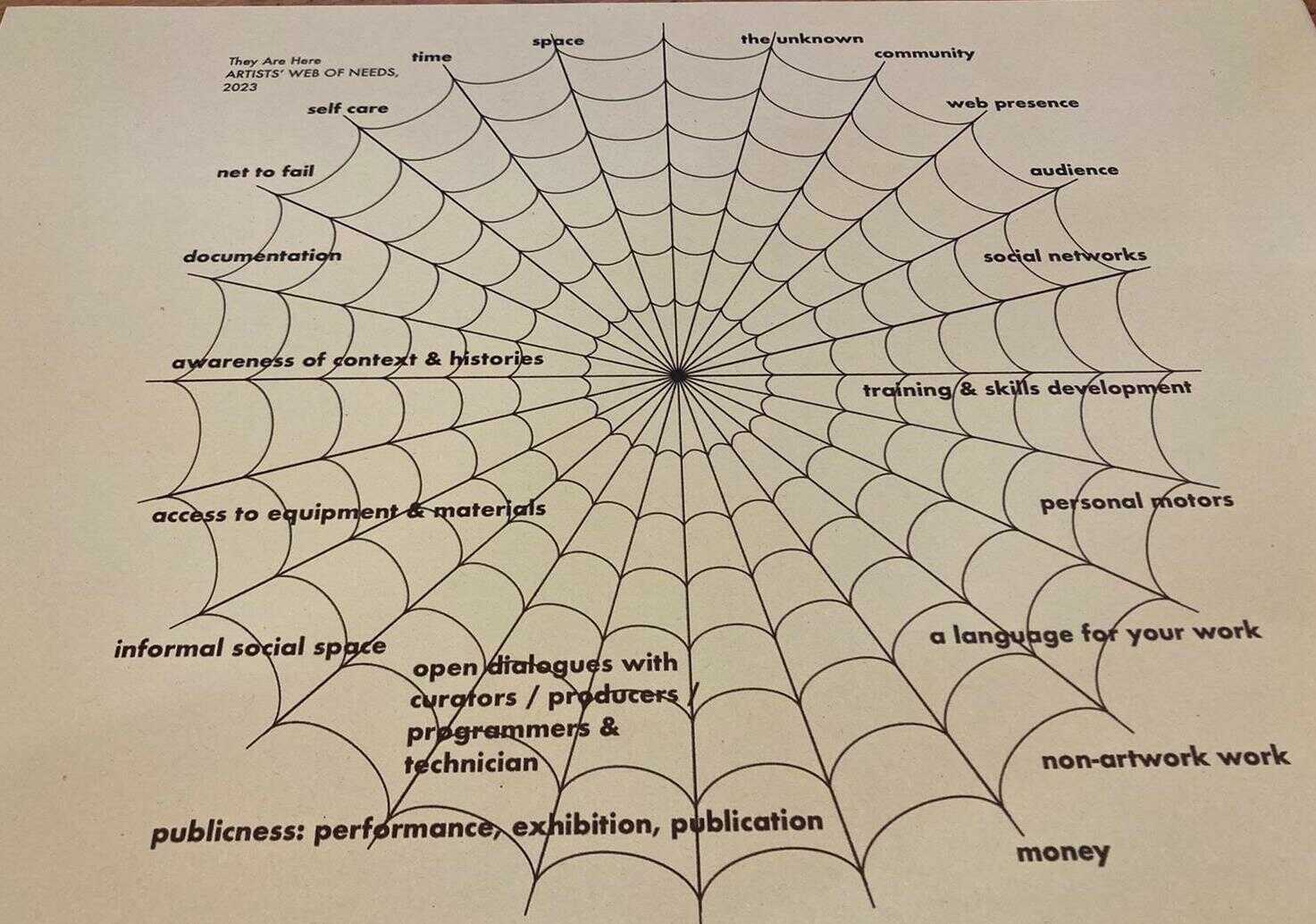2022-2023 LIFE AFTER DAI ~ Navigating (the) Art World(s)
Life after DAI workshop Artists Web of Need by Harun Morrison, an artist and writer whose work often employs collaborative processes. His practice spans spatial design, text, video and sound. Harun will use an evolving, co-authored diagram, Artists’ Web of Need (2011 - ongoing) as the basis of this workshop. The Artists’ Web of Need can be considered a self-diagnostic tool for artists, groups, organizations and institutions supportive of artists. We will use the diagram to map, revise and articulate our own shifting needs as artists post-DAI.
Drawing on first-hand experience as a non-EU citizen working as an artist, curator and writer, this Life after DAI workshop session led by Isabelle Sully will focus on the realities of life after DAI within the Netherlands specifically. Through a number of case studies and subsequent discussions, it will cover funding opportunities (and the varying approaches to them), navigating the bureaucratic struggle of the artist visa (and pre-emptively preparing for the requirements attached to it), and finding the right context for your work amidst the many different kinds of institutional formations in the country. Given that Sully works as an assistant director and curator at a Dutch institution, a freelance writer and has her own artistic practice (within which she has self-initiated two Dutch-based platforms), her experience across different forms of making and presenting within the Netherlands will also be a point of focus in developing a practice that can self-sustain financially.
Drawing from his own experience as a DAI alumnus, and nowadays a PhD candidate – not leaving behind his practice as a curator and artist – the intention of this Life after DAI workshop by Raphael Daibert is to share some opportunities of ‘third cycles’ (residencies, post & academic educational programs) around Europe. The idea of this open conversation is to talk about forms of sustaining oneself from a less careerist angle, and more from the perspective of strategies on how to continue doing artistic research with(in) or outside (art) institutions.

